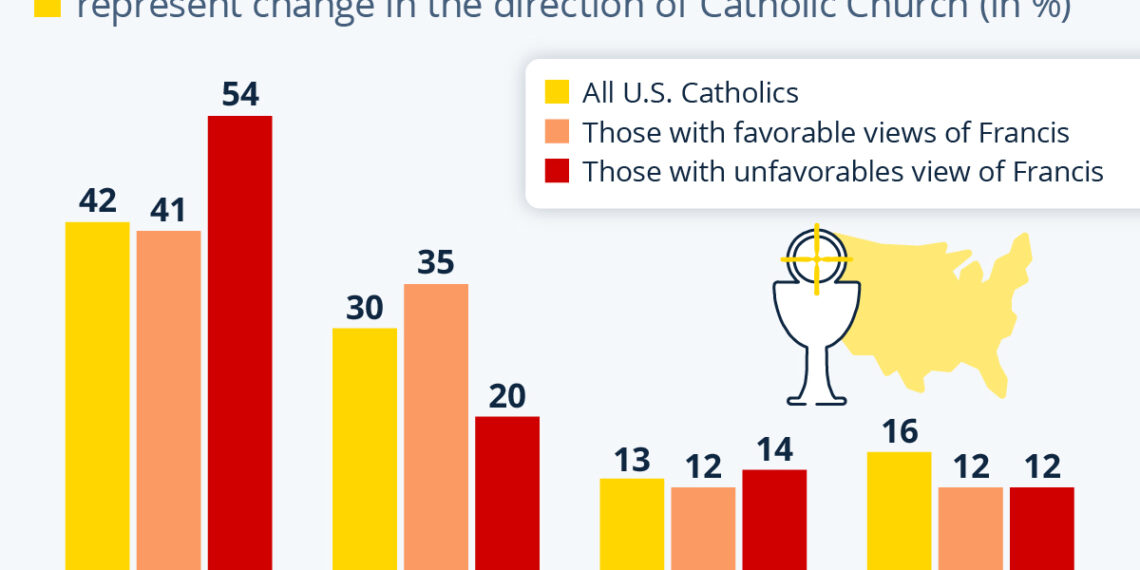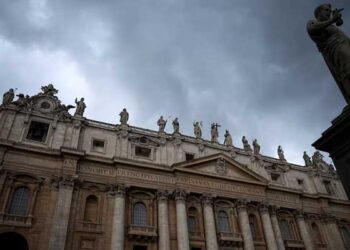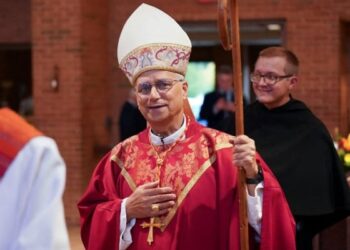Select Language:
The Legacy of Pope Francis: A Symbol of Change in the Catholic Church
A New Era in the Vatican
Pope Francis, elected as the first Latin American pontiff in 2013, transformed the Catholic Church’s global image. His papacy was marked by an unprecedented emphasis on humility, mercy, and social justice, which resonated deeply with many, especially in the United States. His progressive approach to various issues created a significant departure from the traditional teachings and practices of the Church, often inciting both admiration and resistance from Catholics worldwide.
A Humble Leader with a Bold Vision
Upon his election, Pope Francis immediately set the tone for a different kind of papacy. Foregoing many of the luxuries traditionally associated with the papal office, he often opted for simplicity and accessibility. In his addresses and teachings, he encouraged Catholics to live the values of the Gospel with fidelity, courage, and universal love. This focus on compassion and reaching out to the marginalized became hallmarks of his leadership.
A Pastoral Approach to Controversial Topics
One of the key features of Pope Francis’s papacy was his approach to controversial subjects. Unlike his predecessor, Pope Benedict XVI, who upheld strict adherence to Church doctrine, Francis sought to foster dialogue and understanding. He was often seen softening the Church’s stance on sensitive issues like LGBTQ+ rights and divorce, demonstrating a pastoral approach centered on compassion rather than condemnation.
While he maintained traditional Catholic teachings on issues such as contraception and abortion, his message emphasized love and acceptance over rigid orthodoxy. This reorientation welcomed many who felt alienated by the Church, especially younger generations seeking a more inclusive environment.
The Popularity of Pope Francis Among U.S. Catholics
Pope Francis garnered considerable popularity among U.S. Catholics during his tenure. Polls conducted by the Pew Research Center indicated that a significant portion of U.S. Catholics viewed him as a symbol of change within the Church. Notably, 42% of U.S. Catholics expressed that they believed he represented a major change in direction for the Catholic Church. This sense of optimism wasn’t limited to those who viewed him favorably; intriguingly, even 54% of Catholics who held unfavorable opinions of him acknowledged that he symbolized significant change.
Engaging with Political Realities
Pope Francis’s papacy also intersected with political landscapes, particularly in the United States. His vocal criticism of former President Donald Trump during Trump’s first term drew both support and backlash. This engagement with political issues reflected his commitment to social justice and his relentless advocacy for the poor and marginalized, as well as his concern for global issues such as climate change and inequality.
Opposition from Conservative Circles
Despite his popularity, Pope Francis faced considerable opposition from conservative factions within the Church. Critics accused him of straying from traditional Catholic doctrine and embracing progressive ideologies that challenge established norms. This tension highlighted the deep divisions within the Church, as many conservatives argued that his approach could lead to confusion about core Catholic beliefs.
Pope Francis’s Enduring Impact
The legacy of Pope Francis will certainly be examined in light of the profound changes he promoted during his leadership. His commitment to inclusivity, his focus on social justice, and his ability to engage with the cultural and political realities of our time have redefined what it means to be a leader of the Catholic Church. As the Church moves forward, the influence of his papacy will likely continue to provoke discussion and reflection, navigating the balance between tradition and the need for reform.







